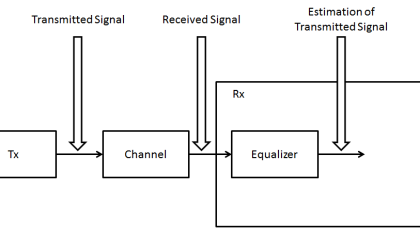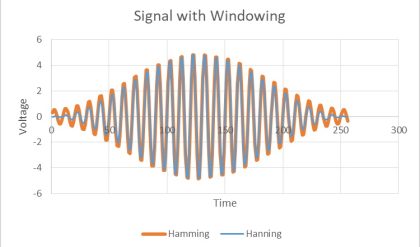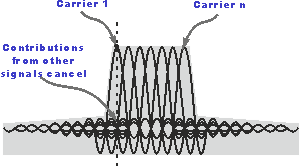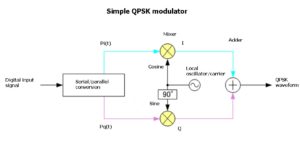Minimum shift keying, MSK, is a form frequency modulation based on a system called continuous-phase frequency-shift keying.
Minimum shift keying, MSK offers advantages in terms of spectral efficiency when compared to other similar modes, and it also enables power amplifiers to operate in saturaton enabling them to provide high levels of efficiency.
Reason for Minimum Shift Keying, MSK
It is found that binary data consisting of sharp transitions between “one” and “zero” states and vice versa potentially creates signals that have sidebands extending out a long way from the carrier, and this creates problems for many radio communications systems, as any sidebands outside the allowed bandwidth cause interference to adjacent channels and any radio communications links that may be using them.
MSK, minimum shift keying has the feature that there are no phase discontinuities and this significantly reduces the bandwidth needed over other forms of phase and frequency shift keying.
Minimum Shift Keying, MSK basics
The problem can be overcome in part by filtering the signal, but is found that the transitions in the data become progressively less sharp as the level of filtering is increased and the bandwidth reduced. To overcome this problem GMSK is often used and this is based on Minimum Shift Keying, MSK modulation. The advantage of which is what is known as a continuous phase scheme. Here there are no phase discontinuities because the frequency changes occur at the carrier zero crossing points.
When looking at a plot of a signal using MSK modulation, it can be seen that the modulating data signal changes the frequency of the signal and there are no phase discontinuities. This arises as a result of the unique factor of MSK that the frequency difference between the logical one and logical zero states is always equal to half the data rate. This can be expressed in terms of the modulation index, and it is always equal to 0.5.


MSK is a particularly effective form of modulation where data communications is required. Although QAM and PSK are used for many other systems, MWK is able to provide relatively efficient spectrum usage. As it is a form of frequency modulation, this enables RF power amplifiers to operate in saturation, thereby enabling them to operate as efficiently as possible. If amplitude variations are present these need to be preserved and amplifiers cannot run in saturation and this significantly limits the efficiency levels attainable.






Comments are closed.